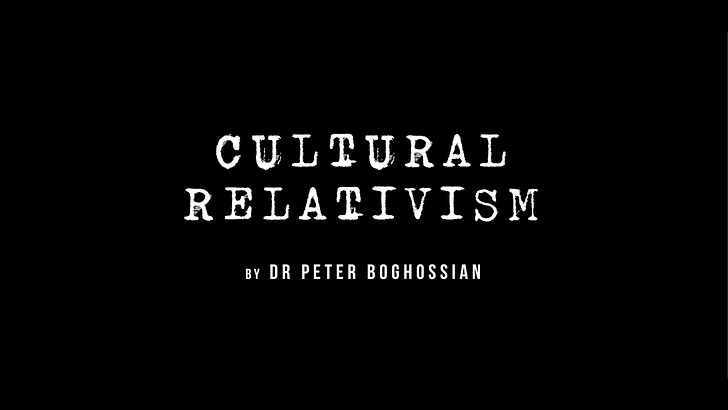Cultural relativism. Cultural relativism is the idea that there's no way to make judgments about the values, practices, or traditions of another culture. In other words, there's no God's-Eye or objective view from outside a system. We're stuck in the values of our own particular culture. The woke almost always talk about cultural relativism when it comes to not making judgments about traditions and practices of people with dark skin. That's why, for example, you never hear woke people speaking out against actual rape culture, like in India, or against female genital mutilation practiced in parts of Africa. They don't criticize these traditions because, they claim, there is no way to separate one's values as a Westerner and make an objective judgment about other cultural practices. Traditions and rituals are relative to each other and there's no objective standard by which they can be judged.
Free Speech: Debate with Andrew Doyle
Dr. Andrew Doyle is the mastermind behind Titania McGrath, author of Free Speech and Why it Matters, Woke: A Guide to Social Justice and other books, and is a presenter on GBNews. I recently had a two-part debate with Andrew on free speech. In the first part, Andrew took the con side, arguing against free speech. In the second part, we switched sides.
We did this because virtually nobody who’s against free speech will subject their arguments to scrutiny. (The notable exception to this was my public letter to Laurie Penny and her response.) And because the anti-free speech side is unwilling to expose their arguments to scrutiny, we are all robbed of the opportunity engage those arguments and figure out if there’s anything to them.
In our first debate, Andrew invoked arguments that have been circulating for some time and have an established intellectual pedigree. In our second debate, I did not repeat any of those arguments, but instead went to the “second-tier,” or less persuasive arguments. The second debate was a bloodbath, with me failing to counter Andrew’s arguments. Still, an extremely important exercise that’s worth watching if you’re interested in free speech and why it matters.
John Stuart Mill made persuasive arguments for free speech, and yet it is important to remember that each generation is not born with that knowledge. It must be relearned. And one of the best ways, if not the best way, to find truth is to engage in a dialectic—a give-and-take, back-and-forth discussion with those who do not share your views. In my debate with Andrew, we did share the same perspective on the issue of free speech, but absent a representative of the other side, we were left to create arguments to counter each other. We were committed, and possibly better advocates of those positions than those who actually hold them.
Bonus: After our second debate, I thought of an argument against free speech I’ve never come across before. Here it is, let me know what you think:
Arguments for free speech have an inherent advantage over arguments against free speech. That’s because to argue for free speech, one needs to use speech (language, more broadly). This is a type of “validity bootstrapping” advantage that one who argues against free speech does not have—thus the pro free speech position starts with an inherent advantage. While there’s no good analogy, it would be like trying to figure out if a hammer is a good tool and each person was only given a hammer to make their case. Just using a hammer, even if poorly wielded or applied to something other than its intended purpose (as a door jamb) demonstrates its usefulness.
I hope you enjoy our debates. Here’s a clip as a preview:



